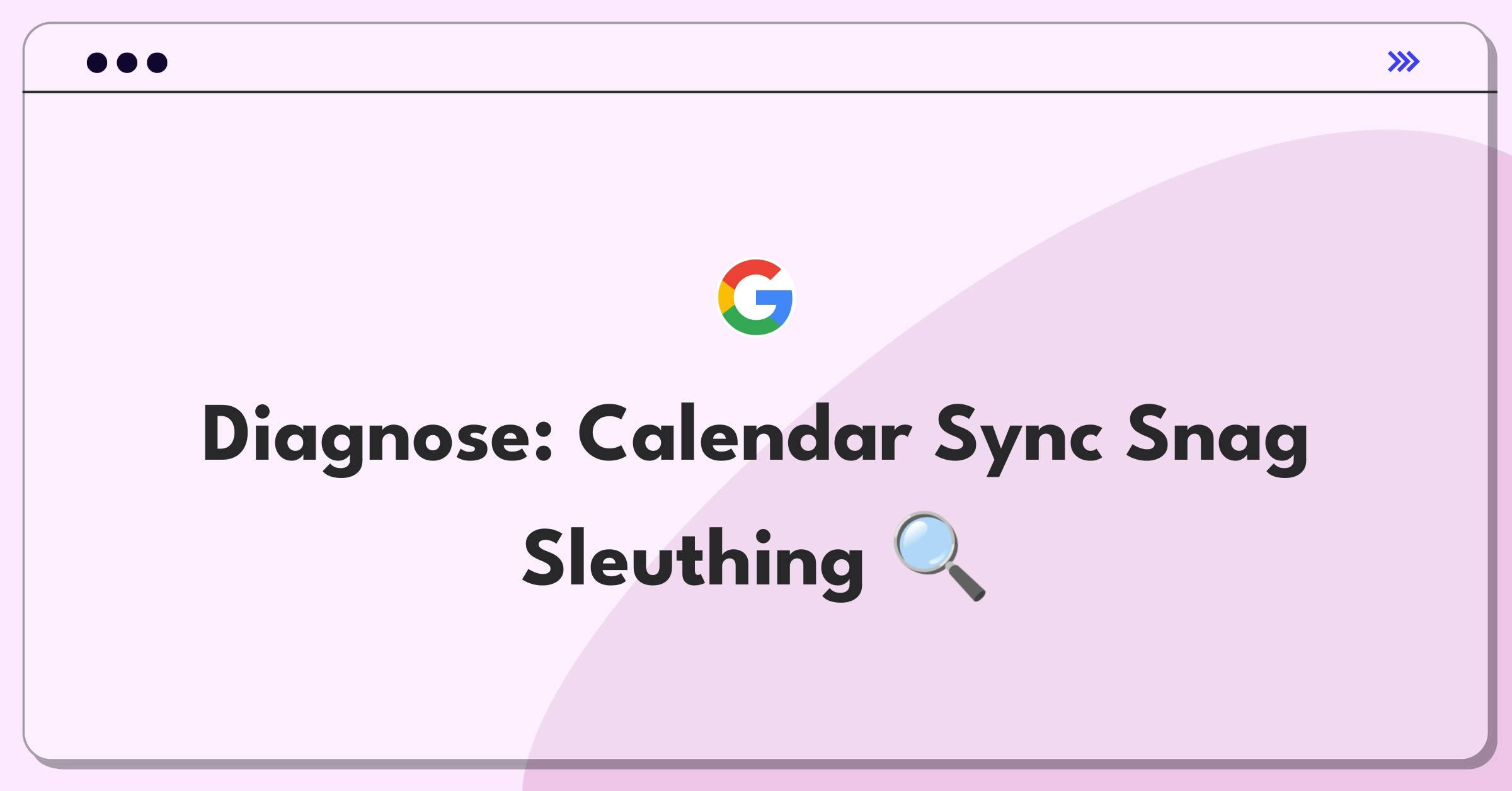Introduction
Google Calendar's recurring event updates failing to propagate to 30% of attendees represents a significant product issue that demands immediate attention. This analysis will systematically identify, validate, and address the root cause while considering both short-term fixes and long-term implications for the product.
I'll approach this problem by first clarifying the issue's context, then ruling out external factors before diving deep into the product's functionality, user journey, and potential internal causes. We'll generate data-driven hypotheses, conduct root cause analysis, and propose validation methods and solutions.
Framework overview
This analysis follows a structured approach covering issue identification, hypothesis generation, validation, and solution development.
Step 1
Clarifying Questions (3 minutes)
Why it matters: Helps determine if this is a new bug or a long-standing issue. Expected answer: It's a recent spike in the last week. Impact on approach: A sudden spike would point towards recent changes or external factors.
Why it matters: Narrows down the scope of the problem and potential causes. Expected answer: The issue affects all recurrence types equally. Impact on approach: If it's specific to certain patterns, we'd focus on those particular algorithms.
Why it matters: Helps identify if the problem is related to certain account types or settings. Expected answer: The issue seems to be evenly distributed across user types. Impact on approach: If it's user-specific, we'd investigate account-level settings or permissions.
Why it matters: Could point to a recent code change or deployment as the cause. Expected answer: There was a minor update to the event syncing algorithm two weeks ago. Impact on approach: We'd prioritize investigating that recent change and its potential impacts.
Subscribe to access the full answer
Monthly Plan
The perfect plan for PMs who are in the final leg of their interview preparation
$99 /month
- Access to 8,000+ PM Questions
- 10 AI resume reviews credits
- Access to company guides
- Basic email support
- Access to community Q&A
Yearly Plan
The ultimate plan for aspiring PMs, SPMs and those preparing for big-tech
$99 $33 /month
- Everything in monthly plan
- Priority queue for AI resume review
- Monthly/Weekly newsletters
- Access to premium features
- Priority response to requested question


.png)